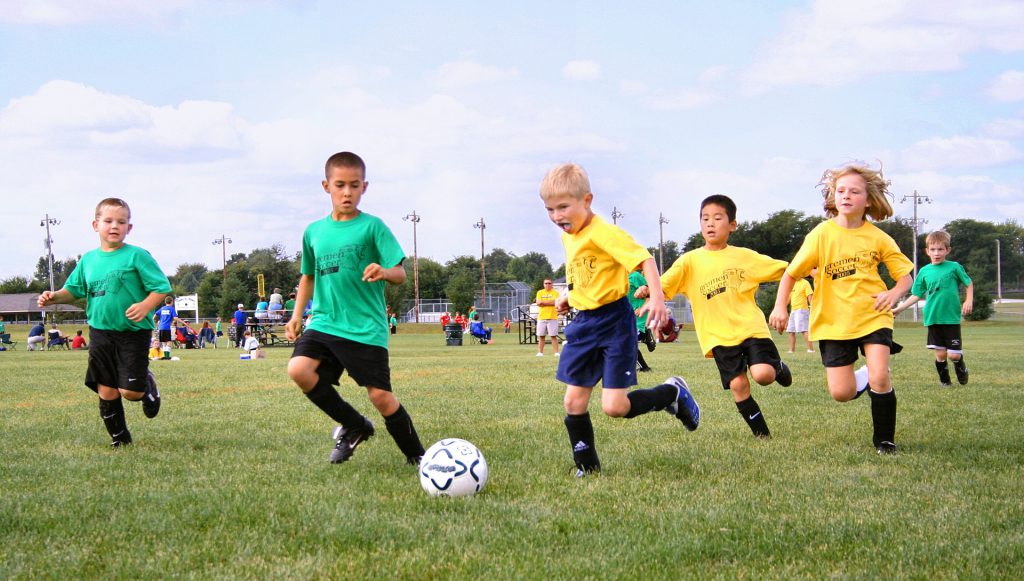
Next week (July 16-22) is National Youth Sports Week. Sports help children and adolescents develop character while keeping them fit and active. Children who play sports learn how to work with others as a team, self-motivation, and how to deal with emotions when a game is lost.
As a parent or caregiver, you can play a role in building your children’s character and sportsmanship through sports. Here are some ways you can do so:
- Be There: Go to as many of your children’s practices and games as you can. They’ll love seeing you out there cheering them on, no matter how they perform. Focus on positive cheering and be respectful to everyone–coaches, referees, opposing team members, and other spectators–even if you don’t agree with a call that was made.
- Help Improve: Try and learn the different skills involved in playing your children’s sports. This is great activity for you and it can be fun to participate with your children. Plus, they’ll get a “built-in coach” at home as you can help them improve their skills.
- Promote Hard Work, Not Winning: Sports are a great way to learn that winning isn’t everything. Encourage your children to put in their best effort, but not get down if they lose. Remind them the importance of trying their best and being respectful, whether they’re winning or losing.
- Look Out For Unhealthy Behaviors: Playing sports can put a lot of stress on children, especially pre-teens and teens. If you see your children putting pressure on themselves, talk with them and remind of their successes, not their failures. Remind them that their value isn’t based on their performance in sports and that you love them no matter what. Also, pay attention to unhealthy weight-control practices, especially in sports like cheerleading, distance running, diving, figure skating, gymnastics, swimming, and weight-class football and wrestling where “making weight” is considered important for success. These might include overexercising, self-induced vomiting, avoiding eating, and using medications to lose weight. Talk to your child’s pediatrician if you suspect any unhealthy practices like these.
While sports can be fun and promote both emotional and physical health, sports can turn into an unhealthy practice when children have negative attitudes about themselves, others, or the game. Do your best to be involved with your children as they play sports and be their biggest fan!
For more information on youth sports, visit https://healthychildren.org/English/healthy-living/sports/Pages/default.aspx.